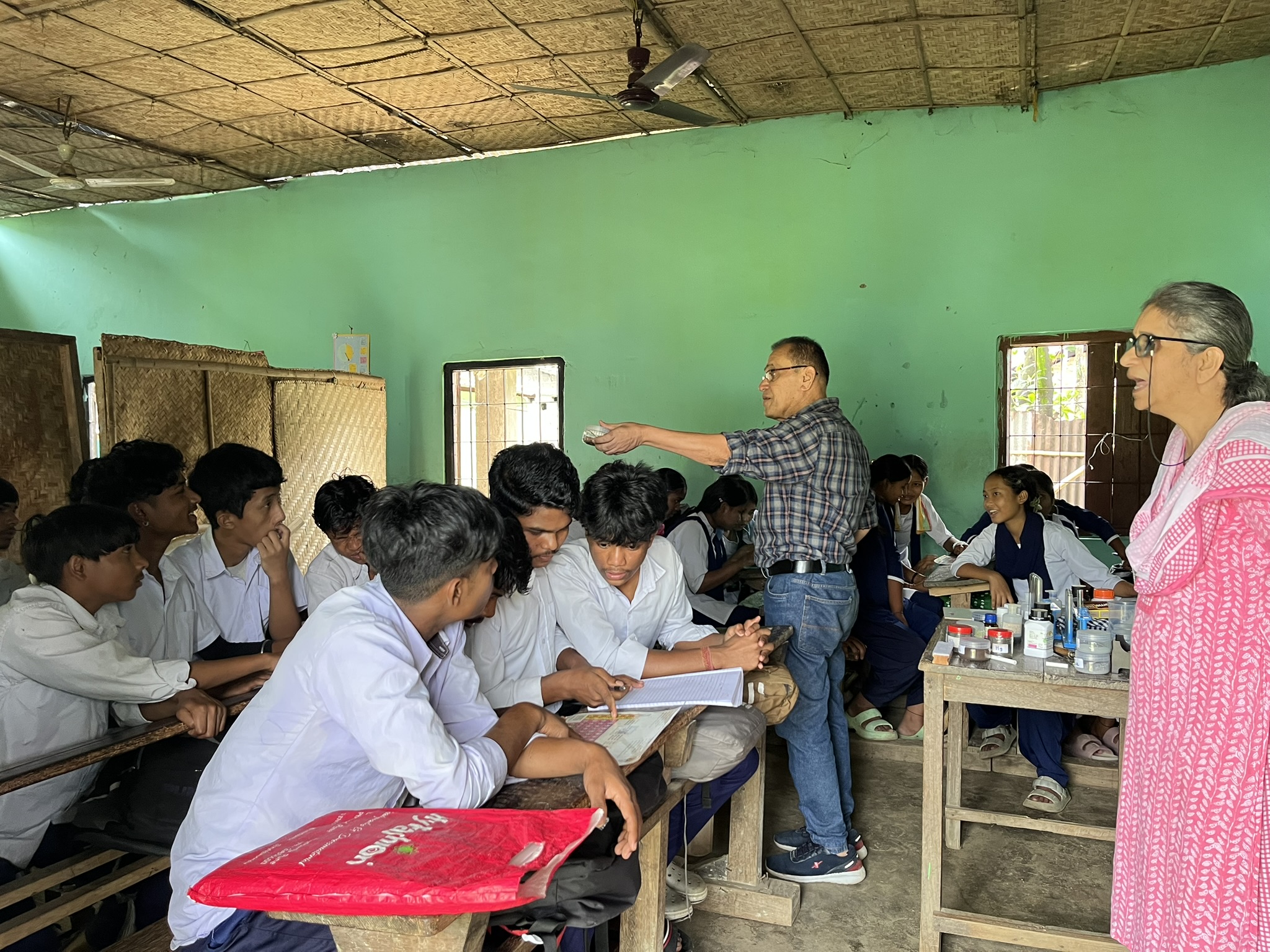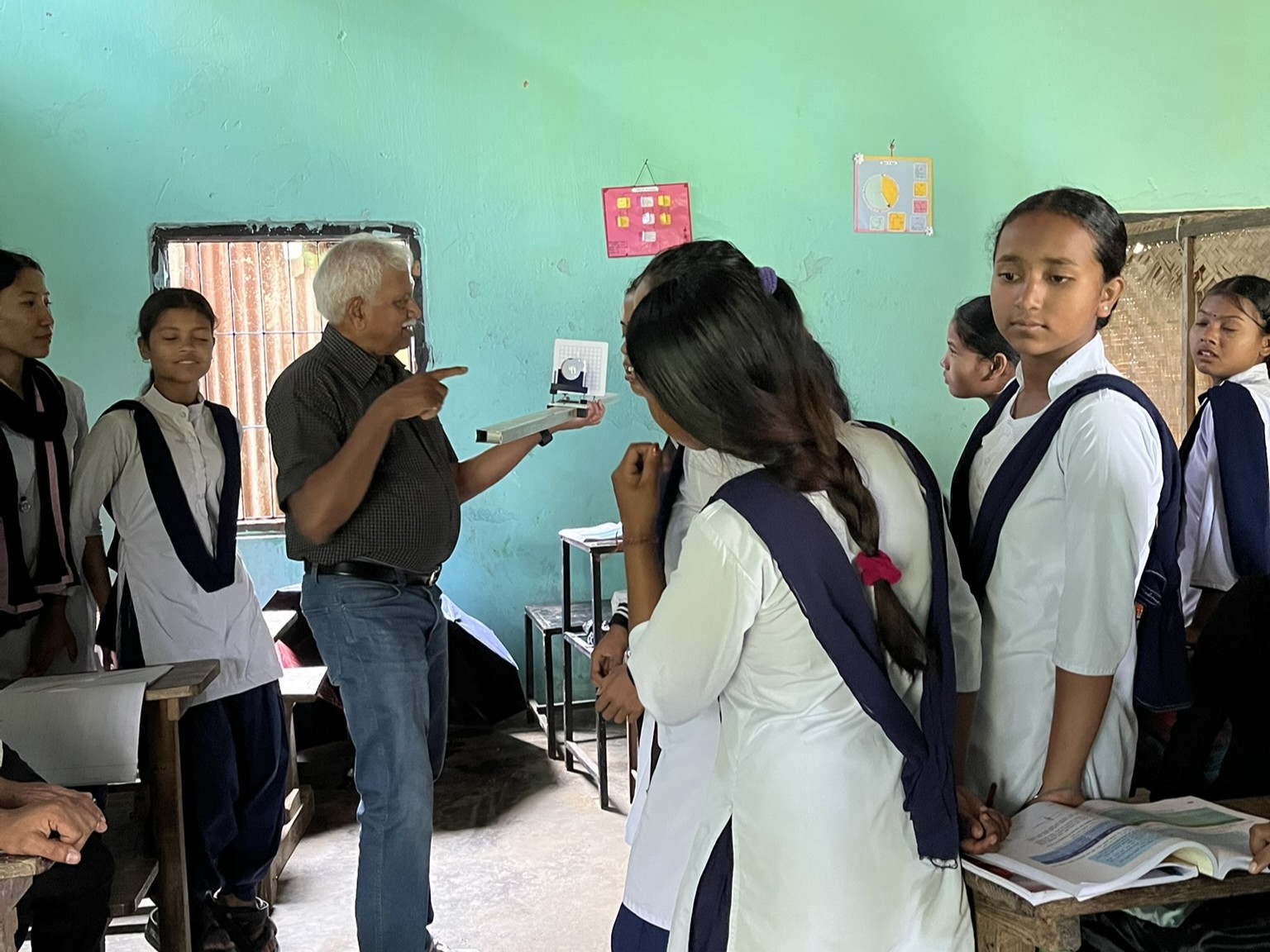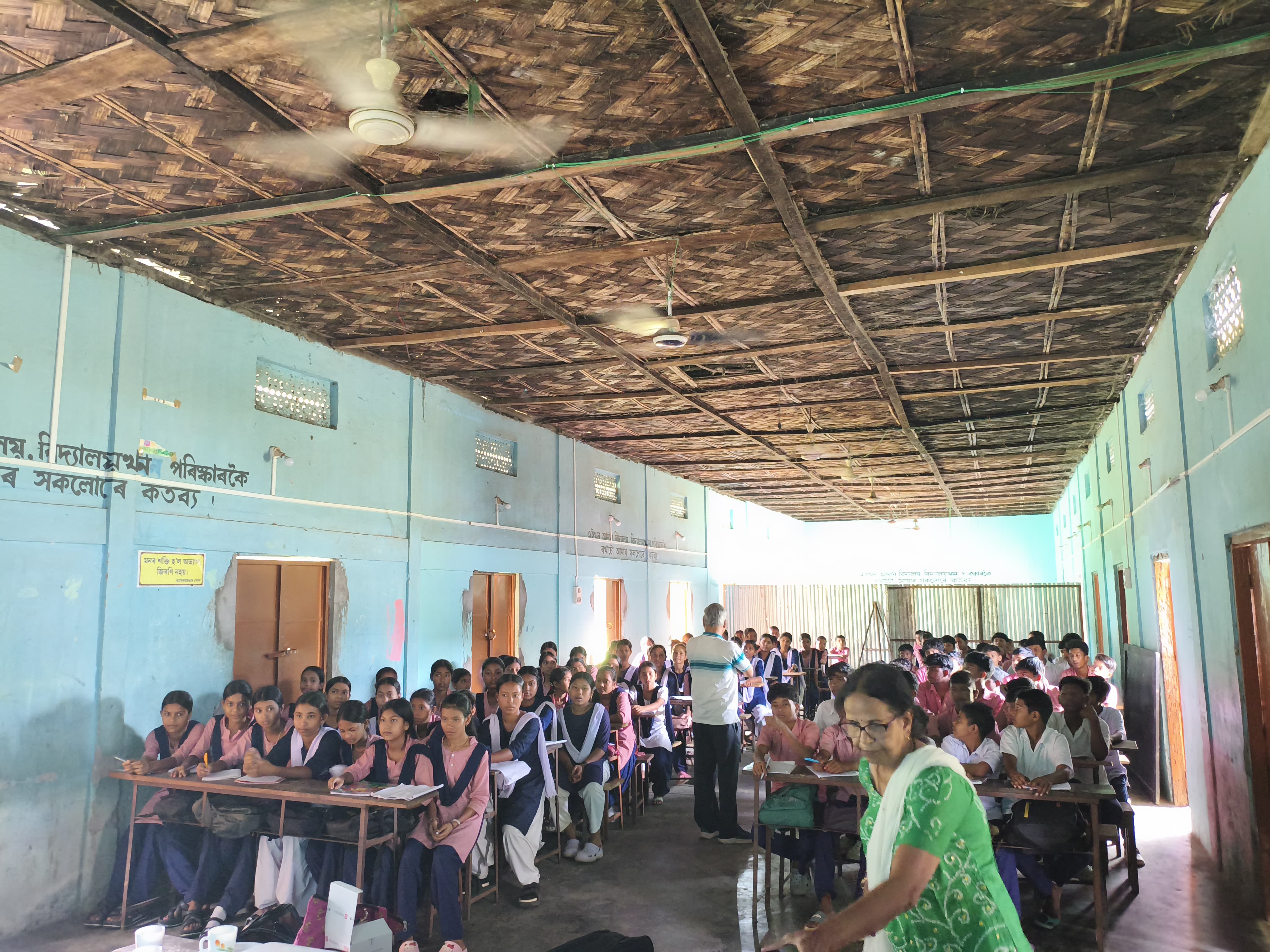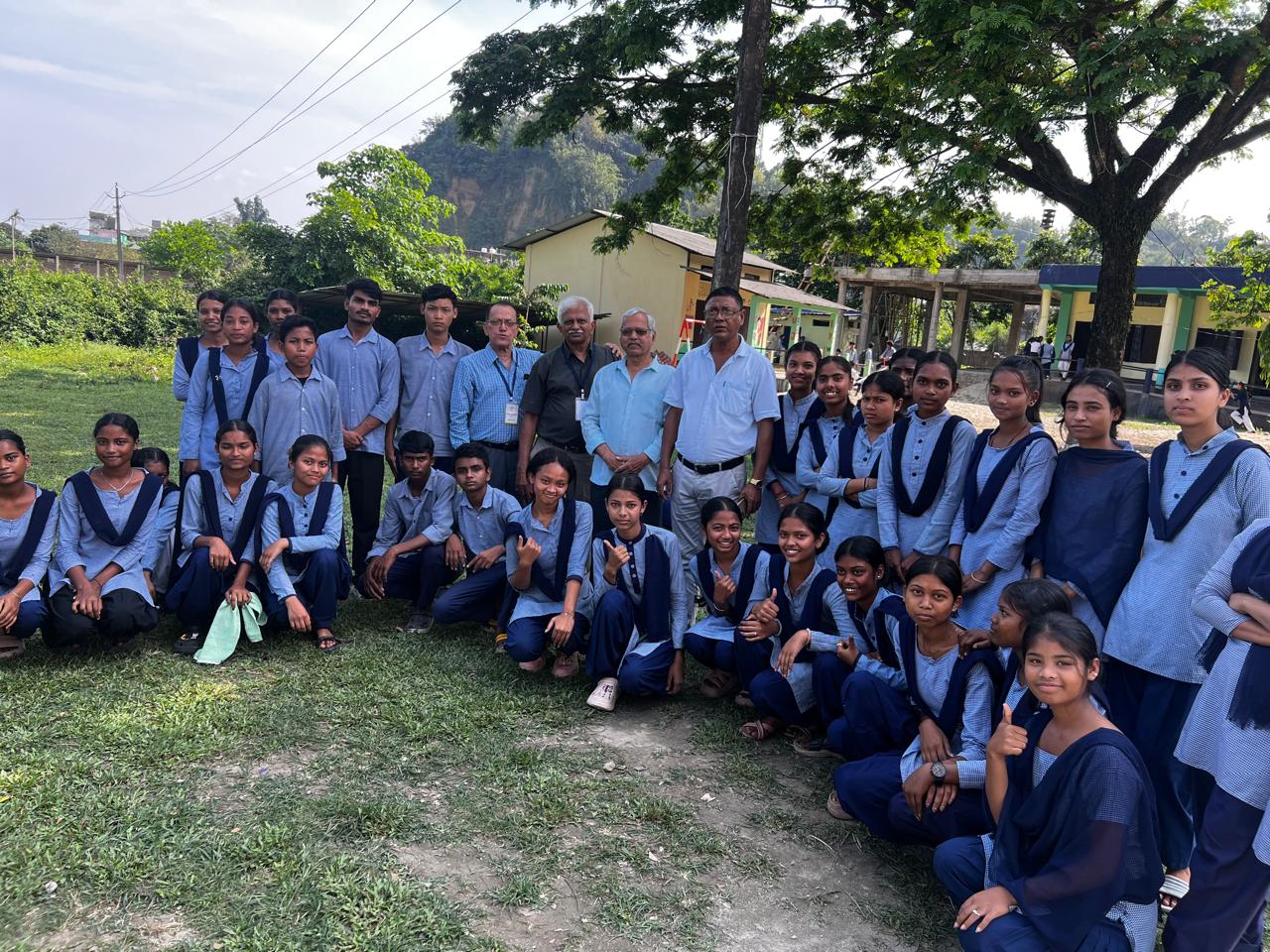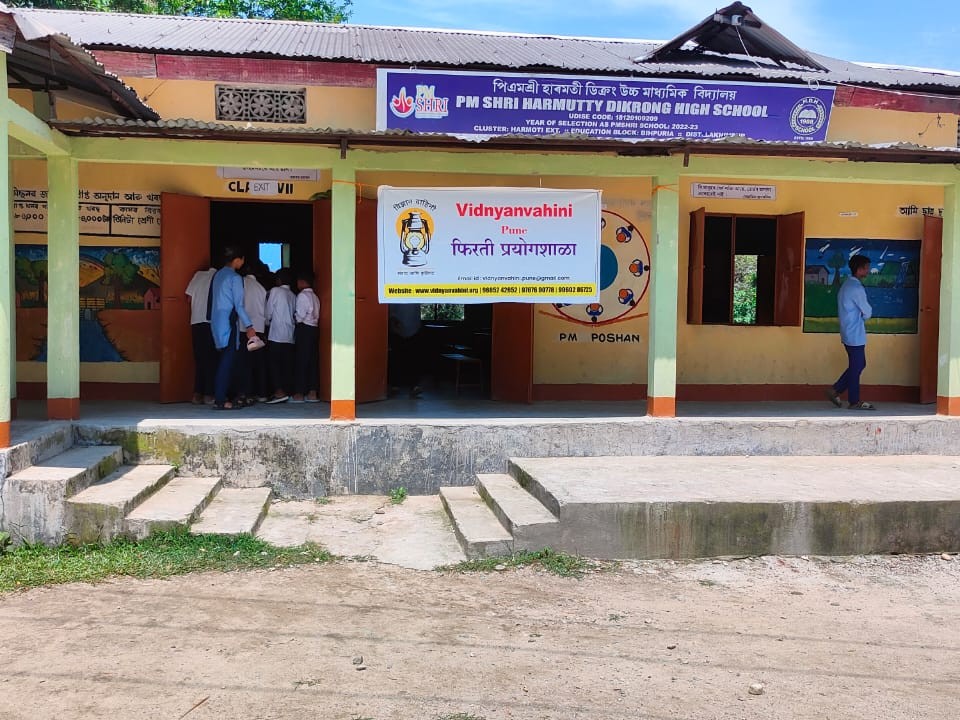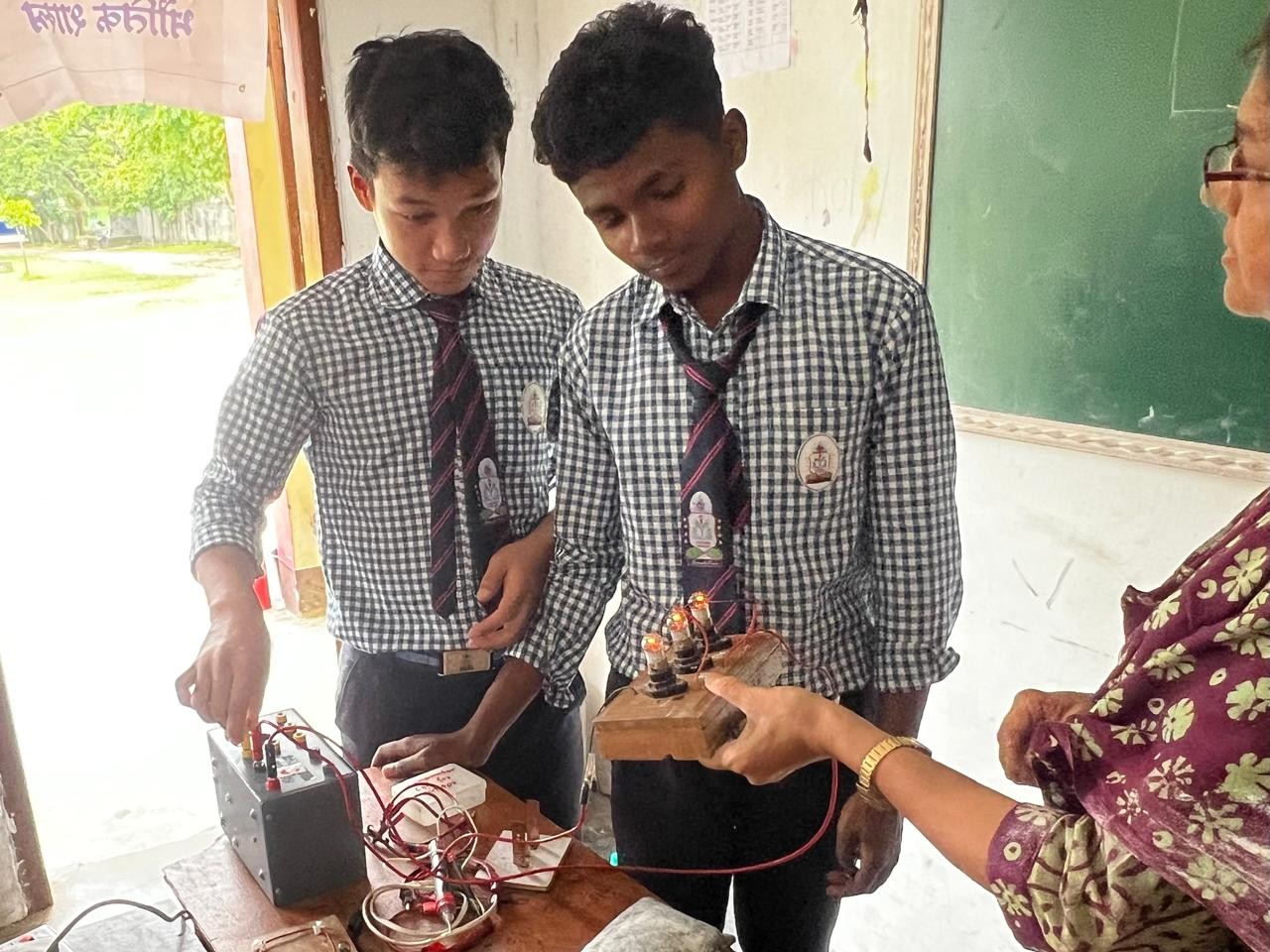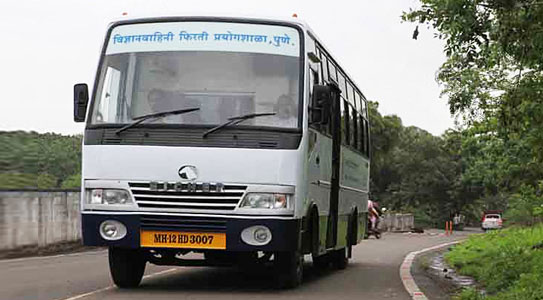
Welcome to Vidnyanvahini, a non-profit organization reaching out to rural school children to offer them a means of learning science through Mobile Science Lab for experiments.
*Click on the image for larger view
विज्ञानवाहिनी आसाम दौरा May 2025
Vidnyanvahini School Tour to Northeast - Parbatipur, Assam
Vidnyanvahini Assam tour was arranged from 27th April to 10th May 2025. Six teachers ( 2 teachers each for Physics, Chemistry and Biology) participated in the tour and conducted science activities in schools.
This tour was arranged in collaboration with 'Bhaskar Sanskar Kendra, Parbatipur' who had organized a 4 days 'Science and Personality Development Camp' for students from grade 8 to grade 11 to increase science awareness within children along with personality development. Parbatipur,a town in Lakhimpur district in north Assam, is situated on the border of Assam and Arunachal Pradesh. The students who participted in the camp were mainly from the households where parents work in Tea-estates.
Science activities (classsrom teaching, demonstrations and hand-on experiements)were conducted everyday for three hours in the morning and evening session used to be informative session on various science topics through lecture-presentations and demonstrations.
After the camp, 5 local schools were visited. Most of these schools were Assamese medium schools with NCERT syllabus or English medium schools with CBSE syllabus. Vidnyanvahini teachers conducted sessions in Hindi as well as in English.
Schools visited :
1. Monikumar High School, Parbatipur
2. Sandipani Academy, Harmutty
3. Harmutty Higher secondary School
4. Gurukul senior secondary school, Lakhimpur
5. PM - Shri Harmutty secondary school, Banderdava>/p>
शैक्षणिक वर्ष 2025
2024-25 ह्या शैक्षणिक वर्षातील दोन्ही सत्रात मिळून विज्ञानवाहिनी 112 शाळा व साधारण 9533 विद्यार्थ्यांपर्यंत पोहोचली. ह्यात पुणे, इस्लाम्पूर व चिपळूण केंद्रांचा सहभाग होता. ह्यात 6 शालेय दौरे आयोजित करण्यात आले. विद्यार्थी शिबिर वर्षाच्या सुरवातीला जून महिन्यात संपन्न झाले.
Latest Updates
- Annual Report for the year 2023-24 can be seen here (PDF 3MB)
- मेंदू- भाग-२ ▶
- दिड किलोची अद्भूत बाब! ▶
- “असे कां आणि कसे? ▶
|
|
|
|
|
|
Vision
While urban India has made very impressive progress to meet the challenges of the twenty-first century, rural school education in India never quite made it out of the nineteenth. This is especially true with respect to science education due to the lack of adequate laboratories. On the global scene, India's contribution to science and technology is quite noteworthy. But education at the rural school level has suffered from benign neglect. Whereas in metropolitan India we see the wonders of technology such as satellite communication and super computers; in rural India we see poverty, a lack of basic infrastructure, and an abundance of superstitions. Vidnyanvahini's vision is to try to reduce this gap as much as possible, at least at the educational level.
Objectives
- To provide rural school children with an opportunity to handle scientific apparatus and learn the basics of science through experiments.
- To create awareness of the relevance of science in the lives of rural school children by discussing concepts such as cleanliness, hygiene, safe drinking water, and the environment.
- To explain the science behind some seemingly curious results, and thus help remove age-old superstitions.
- To educate adolescent children on human reproduction.
- To bridge the gap between urban and rural education.
- To spread the message in rural communities that science can help solve the problems in their everyday lives as much as it does for the urbanites.
- To hold workshops and training camps for science teachers in order to establish a dialogue with them through continuing education.

